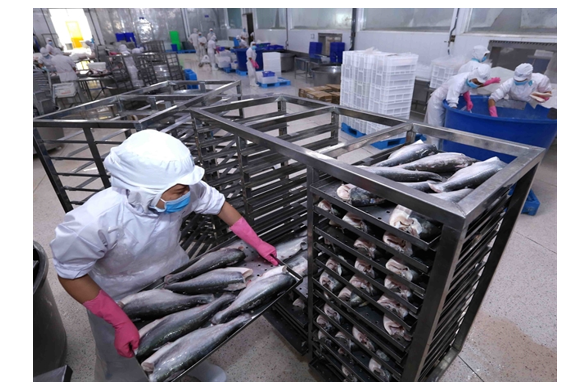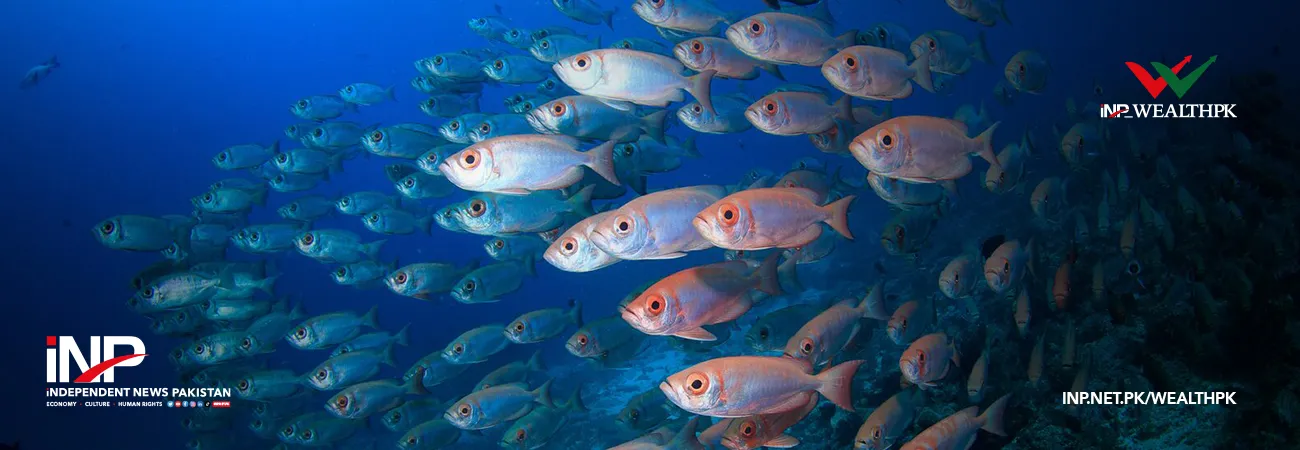INP-WealthPk
Arooj Zulfiqar
Pakistan's fishing industry holds immense potential for growth, but improved

processing techniques and stricter regulatory frameworks are crucial to unlock its full export capacity and increase competitiveness in global markets, reports WealthPK. Pakistan earned $410.268 million by exporting 200,709 metric tonnes of fish and fish preparations during the fiscal year 2023-24, Pakistan Bureau of Statistics (PBS) reported. The fish exports declined 17.38% during FY24 as compared to $496.565 million during fiscal year 2022-23, according to PBS data. In terms of quantity, the exports of fish and fish preparations decreased by 6.45% compared to FY23. On a year-on-year basis, the seafood exports decreased by 22.19% to $31.044 million in June 2024 as compared to $39.896 million in June 2023. In terms of quantity, the exports decreased 16.99% from 18,901 metric tonnes last year to 15,689 metric tonnes during FY24. On a month-on-month basis, the seafood exports declined by 16.26% when compared to $37.070 million in May, according to the PBS data.
Talking to WealthPK, Faisal Iftikhar, Chairman of Pakistan Fisheries Exporters Association, Karachi, said fishing was a crucial source of income for those living along the coasts in Sindh and Balochistan provinces. “One of the major challenges facing Pakistan’s fishing industry is the outdated processing methods used by local fish farmers and trawlers. Most of the fish is harvested without adequate onboard refrigeration or processing facilities, resulting in significant spoilage before the catch even reaches the shore.” "Quality is a primary concern for international buyers," said Iftikhar. “Without proper cooling and processing at sea, a large portion of the fish loses its value. If Pakistan wants to compete with other countries, it needs to invest in modern processing facilities and train workforce to handle seafood in a way that meets global standards."
He said introducing advanced processing techniques would not only reduce wastage but also improve the overall quality of exports. “This, in turn, could help Pakistan move into higher-value markets where premium seafood products are in demand.” The fisheries industry is essential to the livelihoods, nutritional needs, and food security of many Pakistanis, particularly those who live close to the country's coasts. In addition to processing challenges, regulatory gaps hinder Pakistan's fishing industry from maximising its potential. Several key markets have stringent import standards, particularly concerning traceability and sustainability. Pakistan has faced export bans in the past due to its failure to comply with these regulations, including issues related to the protection of endangered species and the use of outdated fishing gear.
Credit: INP-WealthPk




